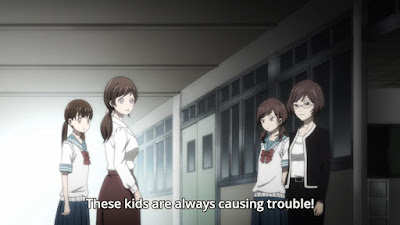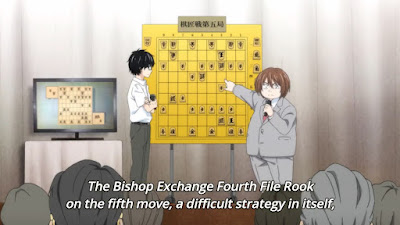The second season of March Comes In like a Lion is 22 episodes long. It’s based upon the manga of the same name. Following Kiriyama, who is a high school student that’s a professional shogi player. Having debuted into the professional scene when he was still in middle school, he is considered somewhat of a prodigy but what lays beneath is complicated. Kiriyama is definitely good as shogi, but so are many others, and it is actually that we see him losing more often than not.
The anime starts off straight after the previous season, and we get a more in-depth shogi match than what we’ve seen so far. It’s not to the point of showing off all the moves, but it lingered on the match longer than usual, and if you’re a viewer with limited knowledge of shogi, then it can be confusing or boring to watch. Nevertheless, this anime doesn’t focus too much on shogi since it is primarily looking into Kiriyama’s personal life, and the complex relationships he has, but mainly the problems that everyone faces.
Soon into the season, it lingers onto a topic that’s tough to watch. Even more so when it happens to the siblings trio that Kiryama had befriended. The sisters Akari, Hina and Momo are so friendly and nice that it hurts you to the core to see what happens to them. It reflects reality on how life isn’t fair, and the type of justice you see in stories is just an idealised version that doesn’t exist. While heart-wrenching, it handles it well as it is a delicate situation that’s not easy to rectify.
The anime strings you along with its various dilemmas. Each one comes in and out of focus. Just when you think the situation might be resolved and the characters are going to move on, it comes back and shows off what had progressed. Again, this is like reality, and unpleasant things just don’t magically go away by themselves. In that aspect, it’s has a good grasp of these tough situations where it’s practically a lose-lose situation no matter what you do. At the same time, it’s also depressing when that is what you have to look forward to, both as the character, and as the viewer. It toys with your emotions, but uses this to give character to Kiriyama, and plenty of heartwarming moments.
That one major arc overshadows most of the season, and when it is finally resolved, it’s a big sigh of relief for both the characters, and the viewer. The resolution is satisfactory, it’s not idealistic, but it’s not grim either. Although it follows its tendency of revealing the other character’s motivations, to justify their actions, but sometimes, it is better to just leave them alone for the viewer to make their own impressions. So once this arc is over, it is nearly almost all sunshine again, these flips and backflips in mood can be jarring as a result.
A theme of the anime is how times moves on. You might have a good or bad moment now, but the situation will continue on and things change. You have to accept it and make the most out of today. Connected to this is how Kiriyama has a lot of prove as one of the few shogi players who turned professional when they were still in middle school. you wonder might this be the time we can finally see Kiriyama start to succeed and progress through the shogi tournaments that he’s participating in? That said, it shows that no matter how good you are, there are always other players who can at least match you if not best you, it’s a never-ending strive for the top.
The anime has a few powerful moments where the emotions of the characters come tumbling out. It’s a sight to behold when a character that’s usually cheerful and bubbly breaks down, or when someone who’s usually emotionless or at least stoic has their emotions gushing out. These elements make the scene even more poignant and coupled with either a soft piano, or the stronger guitar strings, playing in the background, and these scenes hits you hard.
It’s hard to end this season given that the structure of the anime is so that a lot of the episodes, and even the sections within each episode, are so self-contained. Nevertheless, it manages to achieve quite a bit by the end of the season, and it gives off a nostalgic and bittersweet feel. It keeps to its theme of people moving on, but also enjoying and appreciating the joys of the present. All the characters have dramatically grown, and it’s thank to the heavy character development of all the characters that manages to pull off such an ending.
However, also due to its structure, the tendency for supporting characters to pop in and out means that we do not get any resolution for them. What seemed like important characters when they have whole episodes dedicated to them are shoved off the limelight straight away with nary a mention. It’s a bit of a shame when this happens, especially for characters such as Kiriyama’s mentor Shimada, or his rival Nikaido.
Overall, the second season of March Comes In like a Lion is a much stronger, much more powerful story than the first. It touches upon several heavy themes and depicts them in a more realistic way than one would expect. Given it’s such a complex subject, naturally there were myriads of ways it could have ended or developed. Nevertheless, the anime manages to balance and constantly swap between Kiriyama’s personal life that dealt with his relationships with others, and Kiriyama’s professional life as a shogi player. It shows how shogi is an extremely complex game with many elements and strategies, making each game completely different. As a result, each swap complements the other, giving the viewer time to digest and reflect on what has happened.
---------------------------------------------------









